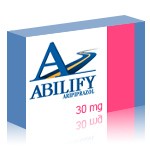Schizophrenia Treatment: Pathways Toward Better Care


Understanding the Problem of Schizophrenia
What is schizophrenia and why is it a challenge for so many people worldwide? Schizophrenia is a long-term mental health condition that affects how a person thinks, feels, and behaves. It can interfere with relationships, work, and basic daily activities. For many, it brings fear, confusion, and frustration because the mind does not always match reality. The illness often appears in young adulthood and can last for life, making it important to find effective ways to treat and manage it.
- Schizophrenia is known to cause hallucinations, delusions, and disorganized thoughts.
- Many individuals also struggle with social interaction and concentration.
- Without treatment, the condition often worsens and leads to isolation.
Schizophrenia needs attention and careful support because it does not go away on its own. Families, communities, and medical professionals all play a role in helping those affected find stability and hope.
Early Signs and Recognition
How can families or caregivers recognize early signs of schizophrenia? In many cases, the condition does not appear suddenly but develops gradually. Changes in mood, energy, and behavior may appear before the more obvious symptoms. These early shifts can be difficult to spot, as they may look like normal stress or teenage behavior. Recognizing them in time gives families the chance to seek medical help earlier, which can greatly improve long-term outcomes.
- Early signs may include withdrawal from friends and family.
- Difficulty concentrating and changes in sleep or appetite patterns.
- Hearing voices or expressing unusual beliefs.
When these signs are noticed, it is important to seek help quickly. The earlier professional support is provided, the more likely it is that symptoms can be managed effectively.
The Importance of Diagnosis
Why is diagnosis so important in treating schizophrenia? Schizophrenia often shares symptoms with other mental health conditions such as depression or bipolar disorder. Because of this, many people may not receive the right treatment immediately. A proper diagnosis helps doctors choose an effective plan, which may include a combination of medication, therapy, and lifestyle adjustments. Getting the diagnosis wrong can lead to wasted time and worsening of symptoms, making early and accurate testing essential.
- Diagnosis usually involves medical evaluation and discussions with a mental health professional.
- It helps distinguish schizophrenia from other conditions with similar symptoms.
- Accurate diagnosis allows doctors to create a balanced treatment approach.
Without a proper diagnosis, treatment can be delayed, leading to more severe problems and making recovery more difficult.
Lifestyle and Support Systems
Can lifestyle changes help in managing schizophrenia? While medicine is often the first thought, many doctors and families agree that lifestyle support is just as important. People living with schizophrenia often benefit from structured daily routines, strong social connections, and healthy self-care practices. These steps may not replace treatment, but they give the person more control over their life and reduce the stress that often worsens symptoms.
- A balanced diet, regular physical activity, and good sleep habits support overall health.
- Support from family, friends, and community groups provides emotional strength.
- Structured routines help reduce stress and uncertainty.
Lifestyle management is not a replacement for medical care, but it strengthens recovery and helps individuals live with more stability.
Psychological Therapies and Social Care
What role do therapy and social care play in schizophrenia treatment? Medication alone cannot solve all the problems linked to this condition. Therapy and community-based programs are often necessary to build coping skills and encourage independence. Many individuals benefit from talking with therapists, joining group sessions, and learning new ways to handle stress. Social programs also step in to support housing, employment, and reintegration into society, making the treatment more holistic and practical.
- Cognitive behavioral therapy helps challenge negative thoughts.
- Family therapy teaches relatives how to provide better support.
- Social care programs help people find housing, jobs, or training.
These tools improve independence and help individuals manage symptoms more confidently alongside medical treatments.
Medication in Schizophrenia Treatment
Why is medication often considered essential in treating schizophrenia? Brain chemistry plays a large role in how this condition develops and continues. Without medication, many people find it difficult to control their thoughts, moods, or perception of reality. Medicines are designed to balance certain chemicals in the brain, making it easier for individuals to focus on therapy and daily life. They reduce severe symptoms and allow people to function in their communities more effectively.
- Medication can reduce hallucinations and delusions.
- It helps regulate mood and thought patterns.
- Long-term use supports better social and occupational functioning.
Medication is not a cure, but it provides a foundation on which other treatments, such as therapy and social care, can be built.
The Role of Abilify (Aripiprazole) in Treatment
How can specific medications improve outcomes? Doctors often select medications based on individual needs, side effects, and treatment goals. Abilify, also known as Aripiprazole, is one option commonly used in schizophrenia treatment. It works differently from some other medicines, aiming to provide balance without overly reducing energy or motivation. For many, it brings relief from distressing symptoms and helps them re-engage with work, study, or family life.
- It works by balancing certain brain chemicals that affect mood and thought.
- Many people experience fewer hallucinations and clearer thinking.
- It can help improve motivation and daily functioning.
Abilify is often chosen because it is considered to have a favorable balance between effectiveness and tolerability.
Combining Approaches for Better Care
Can treatment be successful when different approaches are combined? Schizophrenia is a complex illness, and focusing on just one area often leaves gaps in care. Doctors recommend combining medication, therapy, lifestyle changes, and community support to provide the strongest protection against relapse. People who follow such combined plans usually find greater stability and more opportunities to enjoy their lives.
- Medication such as Abilify supports the brain’s chemical balance.
- Therapy and social care give tools for better coping.
- Healthy lifestyle and supportive families improve daily life.
When these treatments are combined, individuals often experience better stability and long-term improvement.
A Path Toward Stability
Schizophrenia treatment is not about a single solution but about combining medical care, therapy, lifestyle support, and the right medication. With understanding, compassion, and the proper tools, individuals with schizophrenia can live more stable and fulfilling lives. Families and professionals working together make this journey easier and more hopeful.
Drug Description Sources: U.S. National Library of Medicine, Drugs.com, WebMD, Mayo Clinic, RxList
Reviewed and Referenced By:
- Dr. Alan Carter, PharmD – Clinical pharmacist specializing in chronic conditions and mental health medications. Frequently cited on Drugs.com for therapeutic guidance, safety evaluation, and drug interaction reviews.
- Dr. Emily Johnson, MD – Psychiatrist with a focus on schizophrenia and mood disorders. Provides expert reviews for WebMD and Mayo Clinic regarding treatment approaches and mental health care strategies.
- Dr. Michael Andrews, PharmD – Specialist in psychopharmacology and patient adherence. Regular contributor to RxList, offering insights on medication profiles and dosing considerations.
- Dr. Sarah Bennett, MD – Internal medicine physician collaborating with the U.S. National Library of Medicine, ensuring clinical accuracy in mental health-related drug content.
These experts ensure the reliability of drug description sources and provide medical insight into safe and effective use of treatments for schizophrenia.
Article Post: Editorial Team of RXShop.md
(Updated at Oct 4 / 2025)

